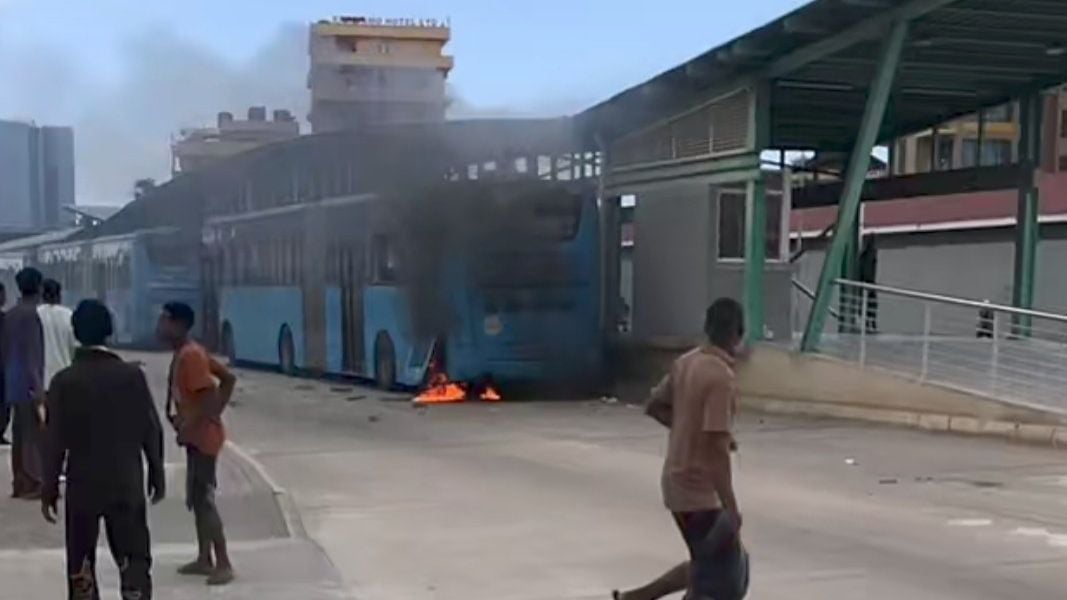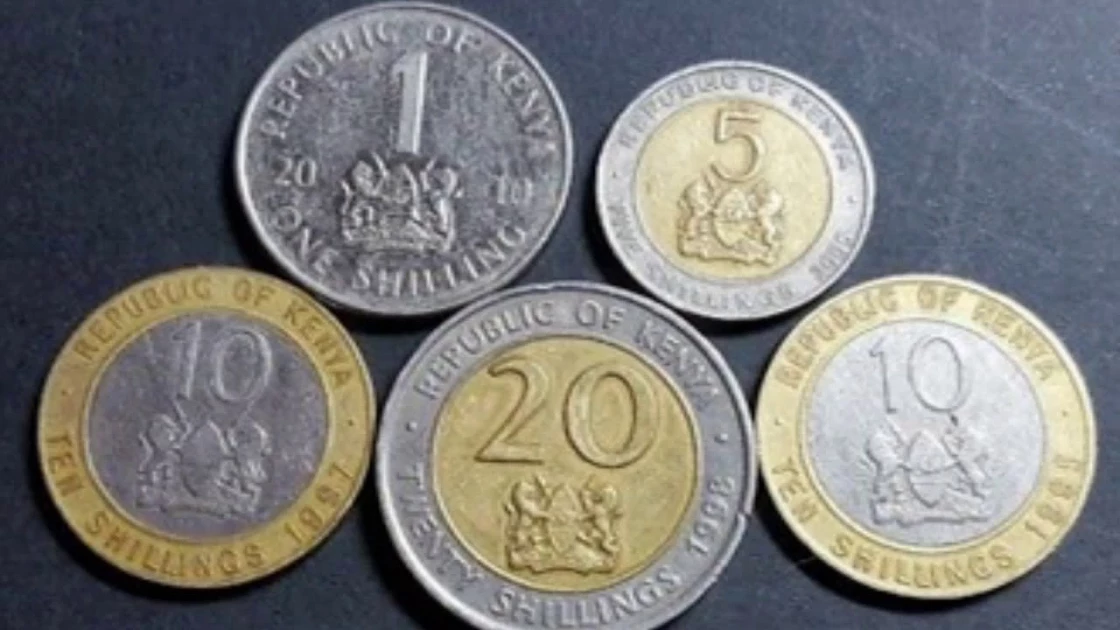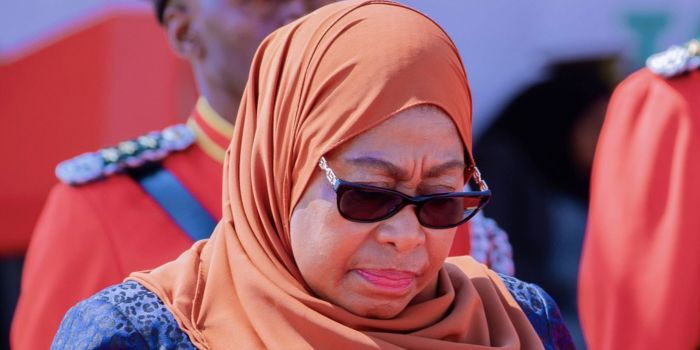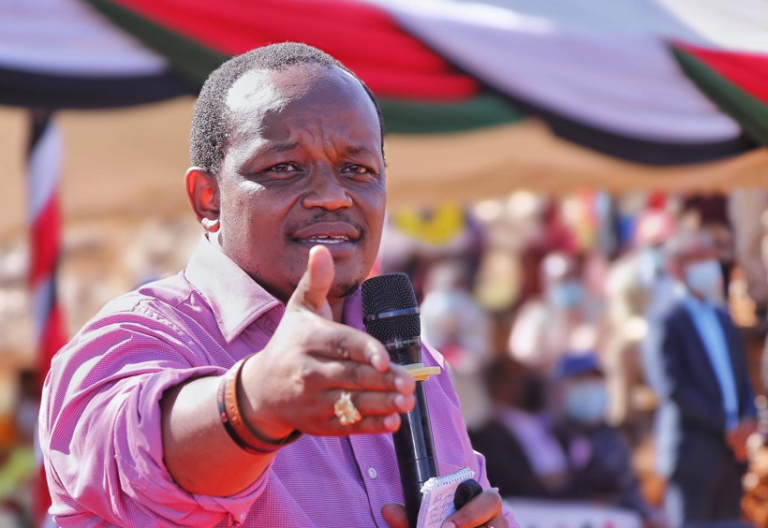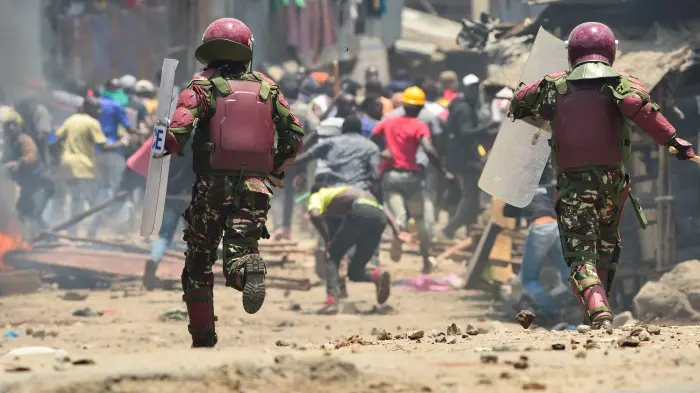
A deep and previously undisclosed rift has emerged within Kenya’s top national security ranks over the handling of the ongoing Gen Z-led protests, Wamuzi News can now exclusively reveal. The quiet but intense dispute threatens to upend internal cohesion at the highest levels of government — and could alter the trajectory of the protests altogether.
According to highly placed sources with direct access to internal deliberations, a faction within the National Security Council (NSC) — which includes the President, Deputy President, Defence CS, Interior CS, and heads of security agencies — has opposed the increasingly militarized response to the youth-led demonstrations that have rocked the country for weeks.
While the public face of the government has been one of unity and condemnation of “anarchic protests,” our investigation reveals sharp disagreements behind closed doors. Some council members are said to have pushed for dialogue and a de-escalation strategy, warning that the current hardline approach could provoke irreversible political damage and spark international backlash.
A Fractured Front

Two senior security chiefs reportedly walked out of a closed-door NSC meeting held last week at State House, sources say, after their calls for restraint were dismissed by a powerful inner circle loyal to a hawkish statehouse advisory unit.
“The advice to open communication channels with the protesters was outrightly shut down,” one source familiar with the events disclosed. “The President was reportedly firm on maintaining a position of zero negotiation.”
Insiders say the disagreement has stalled several security operations that were set to be rolled out in Nairobi, Kisumu, and Mombasa this week. The delay is believed to be linked to fears of mass resignations within the command structure if an escalated crackdown leads to mass civilian casualties.
Growing Dissent Within Parliament
Adding to the pressure, a number of MPs from the ruling coalition have privately expressed discomfort with the response to the protests, fearing political fallout in their home constituencies.
One youthful MP from Rift Valley told Wamuzi News anonymously:
“We are losing the narrative. These are not just street children. They are our voters, our brothers and sisters. If this continues, we risk collapsing our own base.”
Multiple legislators have reportedly reached out to religious leaders and civil society figures to mediate an informal backchannel between Gen Z protest leaders and moderates within government.
International Observers Concerned
Foreign diplomatic missions in Nairobi are quietly monitoring the political storm. A leaked internal communique from a European embassy warned of a potential “human rights flashpoint” if the protests are not handled with “maximum restraint.”
The UN Office in Nairobi has also called for an “inclusive and nonviolent resolution to the grievances being raised,” signaling growing unease at the global level.
Silencing Within Media
A number of local media houses have allegedly received unofficial warnings not to air unfiltered coverage of the protests or feature dissenting political opinions from within the ruling party. At least two editors have reportedly been summoned for “discussions” with state officials.
“We are being asked to ‘tone down’ or risk licenses,” said one media executive, requesting anonymity due to fear of reprisals. “There is a silent censorship happening — not by law, but by intimidation.”
What’s Next?
Despite the tension, the protests show no sign of slowing. In fact, organizers tell Wamuzi News that a massive nationwide protest is being planned for this coming Friday, with new strategies to circumvent police blockades.
Whether the security and political leadership will hold together under growing pressure remains to be seen. What is certain is that behind the public statements of strength, cracks are spreading through the very heart of Kenya’s political and security establishment.
This article is based on verified insider accounts, off-record interviews with sitting government officials, and confidential access to diplomatic communiqués. Due to the sensitive nature of this information, some names and identities have been withheld to protect sources.


